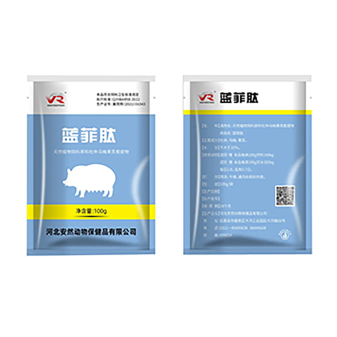- Afrikaans
- Albanian
- Amharic
- Arabic
- Armenian
- Azerbaijani
- Basque
- Belarusian
- Bengali
- Bosnian
- Bulgarian
- Catalan
- Cebuano
- Corsican
- Croatian
- Czech
- Danish
- Dutch
- English
- Esperanto
- Estonian
- Finnish
- French
- Frisian
- Galician
- Georgian
- German
- Greek
- Gujarati
- Haitian Creole
- hausa
- hawaiian
- Hebrew
- Hindi
- Miao
- Hungarian
- Icelandic
- igbo
- Indonesian
- irish
- Italian
- Japanese
- Javanese
- Kannada
- kazakh
- Khmer
- Rwandese
- Korean
- Kurdish
- Kyrgyz
- Lao
- Latin
- Latvian
- Lithuanian
- Luxembourgish
- Macedonian
- Malgashi
- Malay
- Malayalam
- Maltese
- Maori
- Marathi
- Mongolian
- Myanmar
- Nepali
- Norwegian
- Norwegian
- Occitan
- Pashto
- Persian
- Polish
- Portuguese
- Punjabi
- Romanian
- Russian
- Samoan
- Scottish Gaelic
- Serbian
- Sesotho
- Shona
- Sindhi
- Sinhala
- Slovak
- Slovenian
- Somali
- Spanish
- Sundanese
- Swahili
- Swedish
- Tagalog
- Tajik
- Tamil
- Tatar
- Telugu
- Thai
- Turkish
- Turkmen
- Ukrainian
- Urdu
- Uighur
- Uzbek
- Vietnamese
- Welsh
- Bantu
- Yiddish
- Yoruba
- Zulu
8 月 . 07, 2024 06:55 Back to list
Exploring the Mechanisms and Developments in Antimicrobial Pharmacology for Effective Treatment Strategies
Antimicrobial Pharmacology An Overview
Antimicrobial pharmacology is a crucial field within microbiology and pharmacology, focusing on the study and application of drugs that inhibit the growth of microorganisms, such as bacteria, viruses, fungi, and parasites. This area of research is essential for the development of effective treatment strategies against infectious diseases, particularly in an era marked by the rise of antimicrobial resistance (AMR).
Understanding Antimicrobials
Antimicrobials are substances that either kill or inhibit the growth of microorganisms. They can be classified into several categories, including antibiotics, antivirals, antifungals, and antiparasitics. Each category targets specific types of pathogens and has unique mechanisms of action. For example, antibiotics such as penicillin disrupt cell wall synthesis in bacteria, while antivirals like oseltamivir inhibit viral replication.
The effectiveness of these drugs often hinges on their pharmacokinetics and pharmacodynamics. Pharmacokinetics deals with how the body absorbs, distributes, metabolizes, and excretes a drug, whereas pharmacodynamics explores the relationship between drug concentration and its effect on pathogens. Understanding these principles is vital for optimizing dosing regimens and maximizing therapeutic outcomes while minimizing toxicity.
The Challenge of Antimicrobial Resistance
One of the most pressing challenges in antimicrobial pharmacology is the emergence of antimicrobial resistance. The misuse and overuse of antimicrobials in human medicine and agriculture have accelerated the development of resistant strains of pathogens. According to the World Health Organization (WHO), AMR leads to approximately 700,000 deaths annually, a number that could rise dramatically if no effective intervention takes place.
antimicrobial pharmacology pdf

To combat AMR, researchers are exploring several strategies, including the development of new antimicrobial agents, the use of combination therapies, and the implementation of stewardship programs that promote the rational use of existing drugs. Novel approaches, such as phage therapy, which utilizes bacteriophages to target specific bacteria, are also being investigated as potential alternatives to traditional antibiotics.
The Role of Clinical Pharmacology
Clinical pharmacology plays a significant role in antimicrobial therapy, ensuring that treatment decisions are guided by sound evidence. Clinical trials are essential for evaluating the safety and efficacy of new antimicrobial agents, as well as understanding how different populations may respond to these treatments. Factors such as age, comorbidities, and genetic variations can influence individual responses, making personalized medicine an important consideration in antimicrobial pharmacology.
Additionally, the development of diagnostic tools that quickly identify pathogens and their resistance profiles is crucial in guiding appropriate therapy. Rapid diagnostics can help clinicians select the right drug and dosage, reducing the likelihood of treatment failure and the further spread of resistance.
Future Directions
The future of antimicrobial pharmacology will likely be shaped by advancements in technology, including artificial intelligence and genomics, which can aid in drug discovery and the understanding of microbial behavior. Collaborative efforts among researchers, healthcare providers, policymakers, and the public will be critical in addressing the challenges posed by infectious diseases and antimicrobial resistance.
In conclusion, antimicrobial pharmacology is a dynamic and vital field that plays a key role in safeguarding public health. Ongoing research and innovation are essential for developing new strategies to combat infectious diseases and to ensure the effective use of existing antimicrobial agents. By addressing the challenge of AMR and promoting responsible antibiotic use, the healthcare community can continue to protect patients and promote better health outcomes globally.
-
The Power of Radix Isatidis Extract for Your Health and Wellness
NewsOct.29,2024
-
Neomycin Sulfate Soluble Powder: A Versatile Solution for Pet Health
NewsOct.29,2024
-
Lincomycin Hydrochloride Soluble Powder – The Essential Solution
NewsOct.29,2024
-
Garamycin Gentamicin Sulfate for Effective Infection Control
NewsOct.29,2024
-
Doxycycline Hyclate Soluble Powder: Your Antibiotic Needs
NewsOct.29,2024
-
Tilmicosin Premix: The Ultimate Solution for Poultry Health
NewsOct.29,2024













